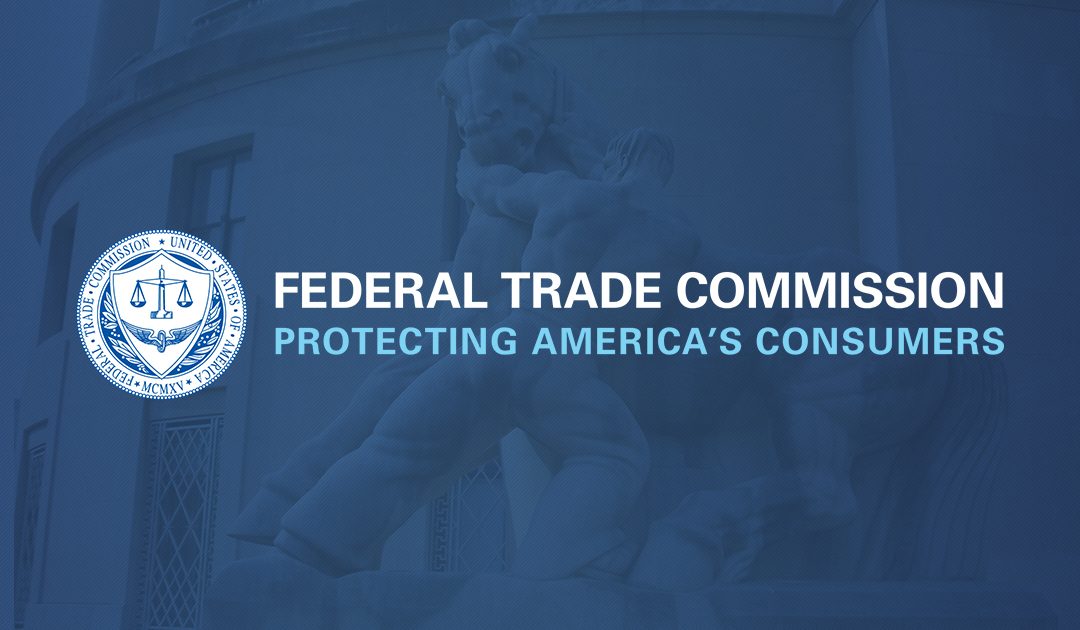
by Scott Muniz | Mar 25, 2021 | Security
This article was originally posted by the FTC. See the original article here.
While everything about the past year has felt strange and new — I just can’t say unprecedented another time — we could see one thing coming: scammers seized any opportunity to take advantage of the confusion and heightened emotion surrounding COVID-19. So, the FTC sprang into action, suing companies that made deceptive claims and did not correct them, making sure that deceptive claims for hundreds of products were quickly removed, sending hundreds of warning letters, and creating a dedicated site to share information as quickly as possible. We kept moving on other issues, too, got back $483 million to consumers who lost money to frauds, and expanded our outreach. Here’s the highlight reel from 2020.
- Reporting for duty. The agency launched a new streamlined and user-friendly website, ReportFraud.ftc.gov, where you can easily report scams, frauds, and bad business practices. The FTC has long encouraged people to report these issues to the agency when they encounter them — whether or not they lost money to the fraud.
- Helping every community. The FTC kicked off a new initiative, the Community Advocate Center, aimed at partnering with community legal aid organizations to expand our outreach to lower-income communities to encourage them to report fraud and provide them with advice to help recover.
- Reaching out. Last year, the Commission published 470 consumer blog posts (243 in English, 227 in Spanish) sent to more than 367,000 subscribers: more than 312,000 in English and 55,000 in Spanish. The FTC’s blog posts from 2020 (in English) logged more than 7.9 million views.
- Just watch. FTC videos online logged 2 million views. The most viewed video was Your Source for a Truly Free Credit Report? Annual Credit Report.com; it got 140,600 views on the FTC’s websites and 74,300 views on YouTube. In 2020, the FTC’s YouTube channel gained 7,700 new followers (for a total of 22,400).
- You’ve got mail. In 2020, the Commission had a total of 2.2 million people who got the agency’s email updates.
- Social life. The FTC’s social networks had a healthy growth spurt last year: for Facebook, more than 10,000 new followers (for a total of 89,000); for Twitter, nearly 9,000 new followers (for a total of 78,000); and for LinkedIn, 3,900 new followers (for a total of 15,200).
Brought to you by Dr. Ware, Microsoft Office 365 Silver Partner, Charleston SC.
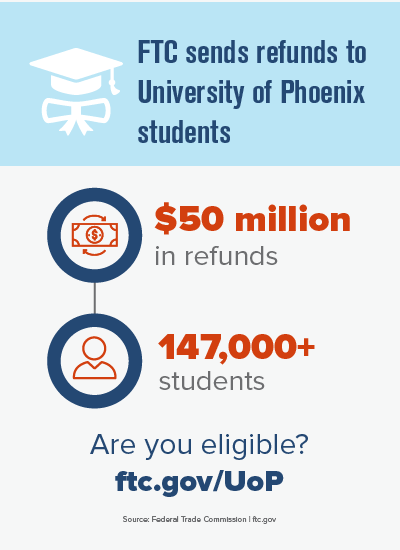
by Scott Muniz | Mar 24, 2021 | Security
This article was originally posted by the FTC. See the original article here.
-
They first enrolled in an associate’s, bachelor’s, or master’s degree program at the University of Phoenix between October 15, 2012 and December 31, 2016;
-
They paid more than $5,000 to the University (using cash, student loans, military benefits, or a combination);
-
They did not object when the University of Phoenix sent them a notice asking if it could give their information to the FTC. 
If you think you might be getting a payment, know this: the FTC will never ask you to pay or give sensitive information before it sends you a payment. Not your Social Security, bank account, or credit card number. If someone says they’re from the FTC, but they ask for money, that’s a scam. If you spot a scam, fraud or bad business practice, please tell the FTC at ReportFraud.ftc.gov.
Brought to you by Dr. Ware, Microsoft Office 365 Silver Partner, Charleston SC.
by Scott Muniz | Mar 24, 2021 | Security, Technology
This article is contributed. See the original author and article here.
Mozilla has released security updates to address vulnerabilities in Firefox, Firefox ESR, and Thunderbird. A remote attacker could exploit some of these vulnerabilities to take control of an affected system.
CISA encourages users and administrators to review the Mozilla security advisories for Firefox 87, Firefox ESR 78.9, and Thunderbird 78.9.
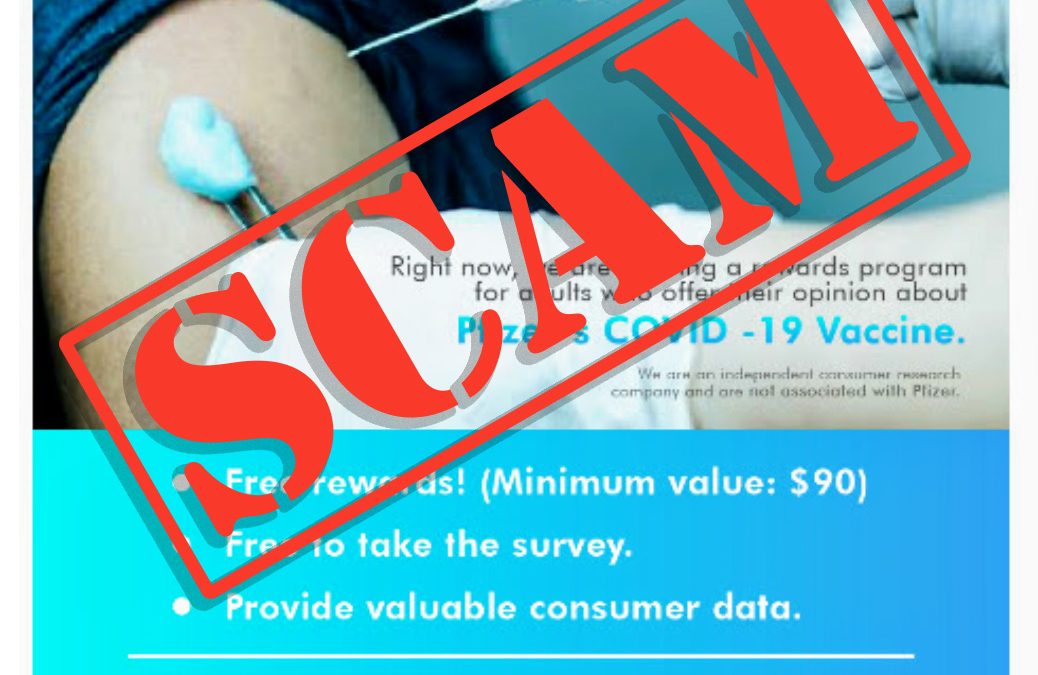
by Scott Muniz | Mar 24, 2021 | Security
This article was originally posted by the FTC. See the original article here.
Scammers are using a new trick to steal your money and personal information: a bogus COVID vaccine survey.
People across the country are reporting getting emails and texts out of the blue, asking them to complete a limited-time survey about the Pfizer, Moderna, or AstraZeneca vaccine. (And no doubt, there may be one for Johnson & Johnson, too.) In exchange, people are offered a free reward, but asked to pay shipping fees.
If you get an email or text like this, STOP. It’s a scam.
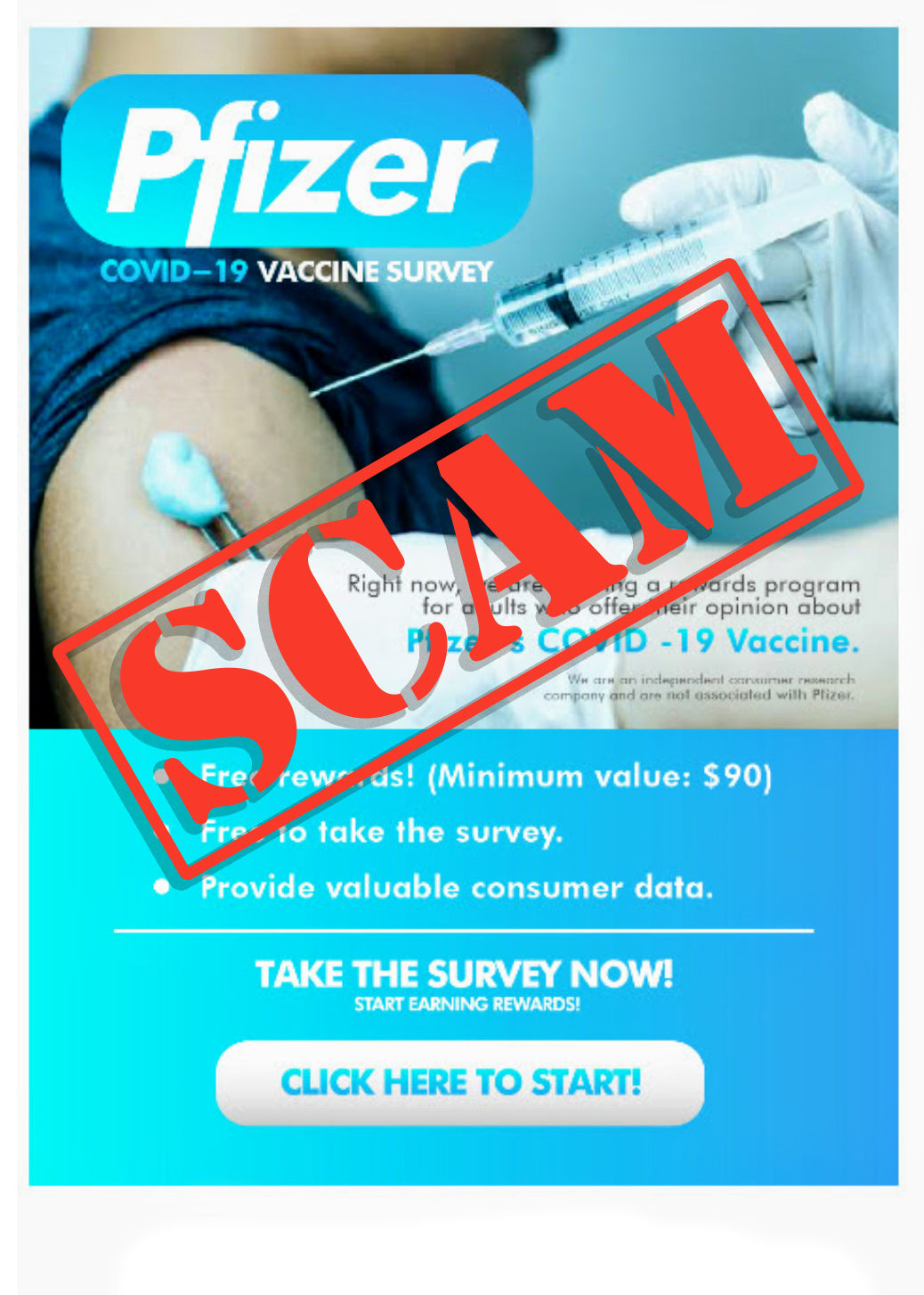
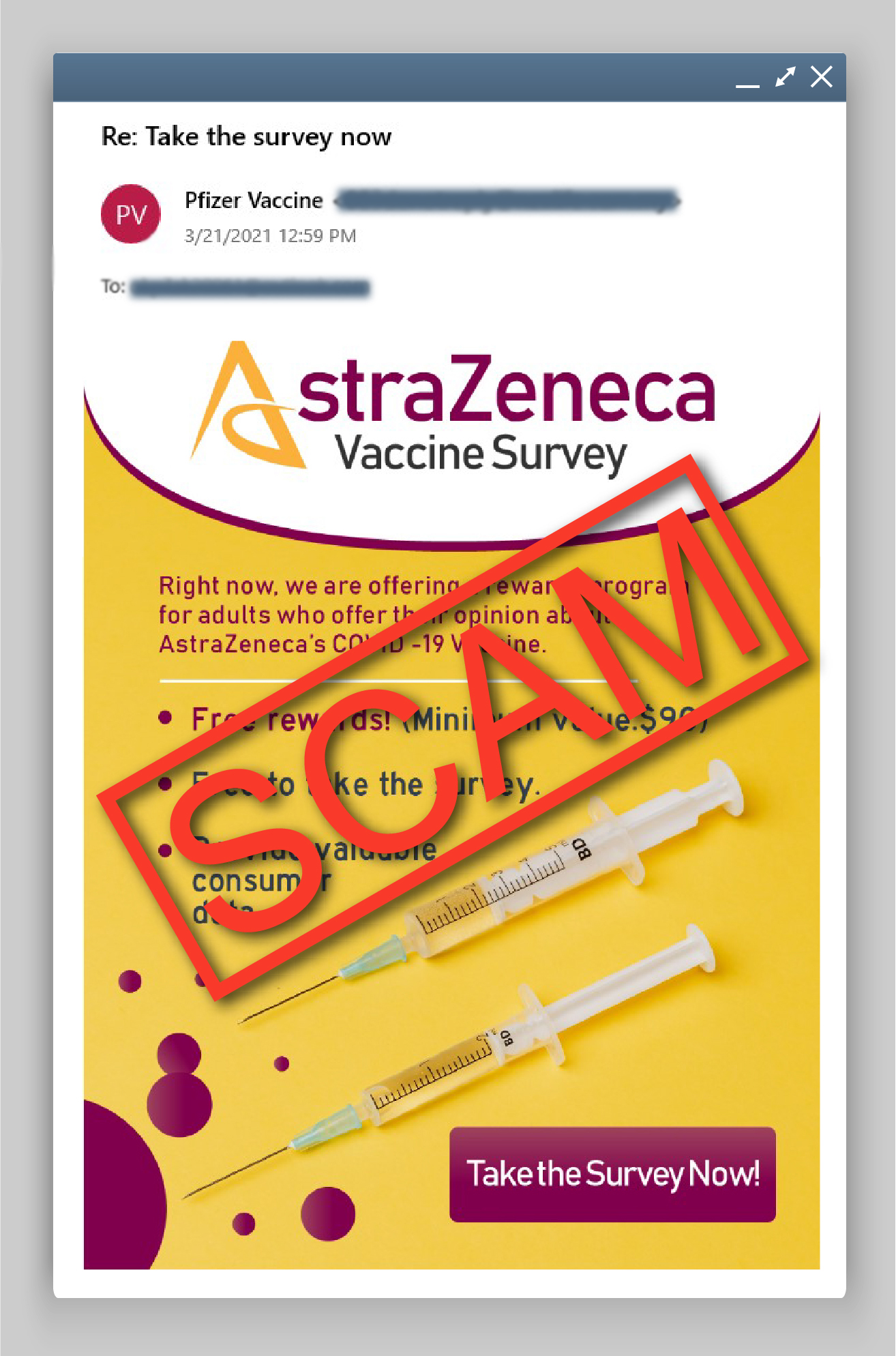

No legitimate surveys ask for your credit card or bank account number to pay for a “free” reward.
If you get an email or text you’re not sure about:
- Don’t click on any links or open attachments. Doing so could install harmful malware that steals your personal information without you realizing it.
- Don’t call or use the number in the email or text. If you want to call the company that supposedly sent the message, look up its phone number online.
Remember:
- Don’t give your bank account, credit card, or personal information to someone who contacts you out of the blue.
- You can filter unwanted text messages on your phone, through your wireless provider, or with a call-blocking app.
- If you get an email or text that asks for your personal information and you think it could be a scam, tell the FTC at ReportFraud.ftc.gov.
To learn more about COVID-related frauds and scams, visit ftc.gov/coronavirus/scams.
Brought to you by Dr. Ware, Microsoft Office 365 Silver Partner, Charleston SC.
by Scott Muniz | Mar 23, 2021 | Security, Technology
This article is contributed. See the original author and article here.
Adobe has released security updates to address a vulnerability affecting ColdFusion. An attacker could exploit this vulnerability to take control of an affected system.
CISA encourages users and administrators to review Adobe Security Bulletin APSB21-16 and apply the necessary updates.









Recent Comments